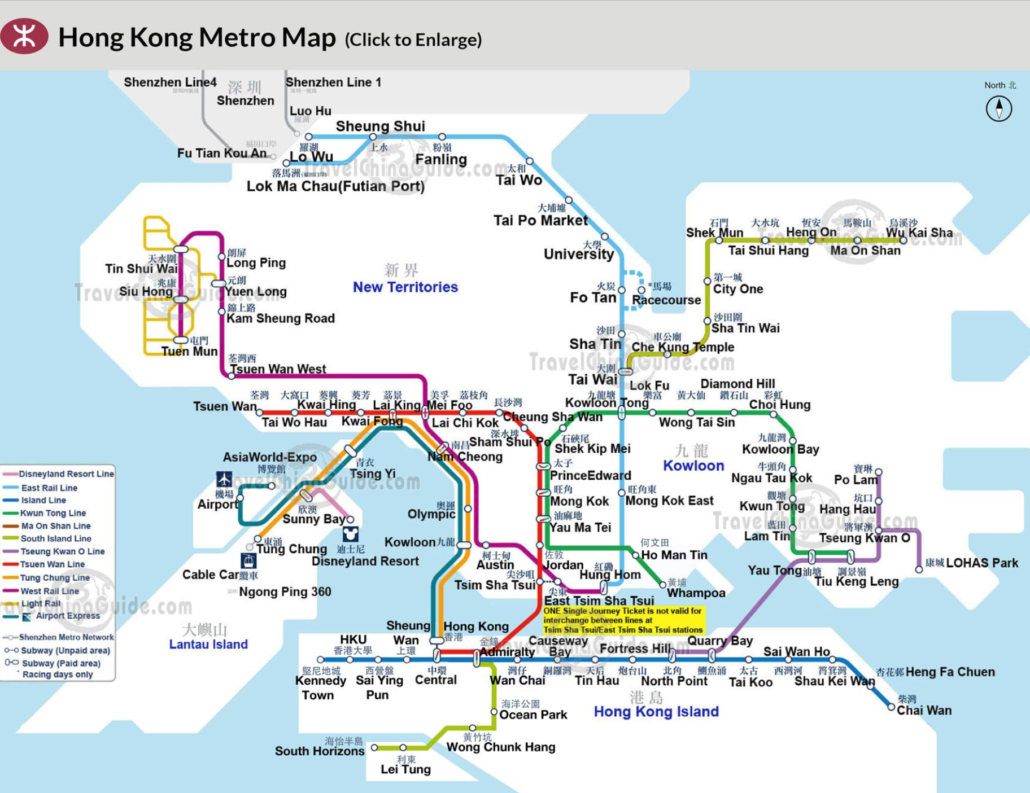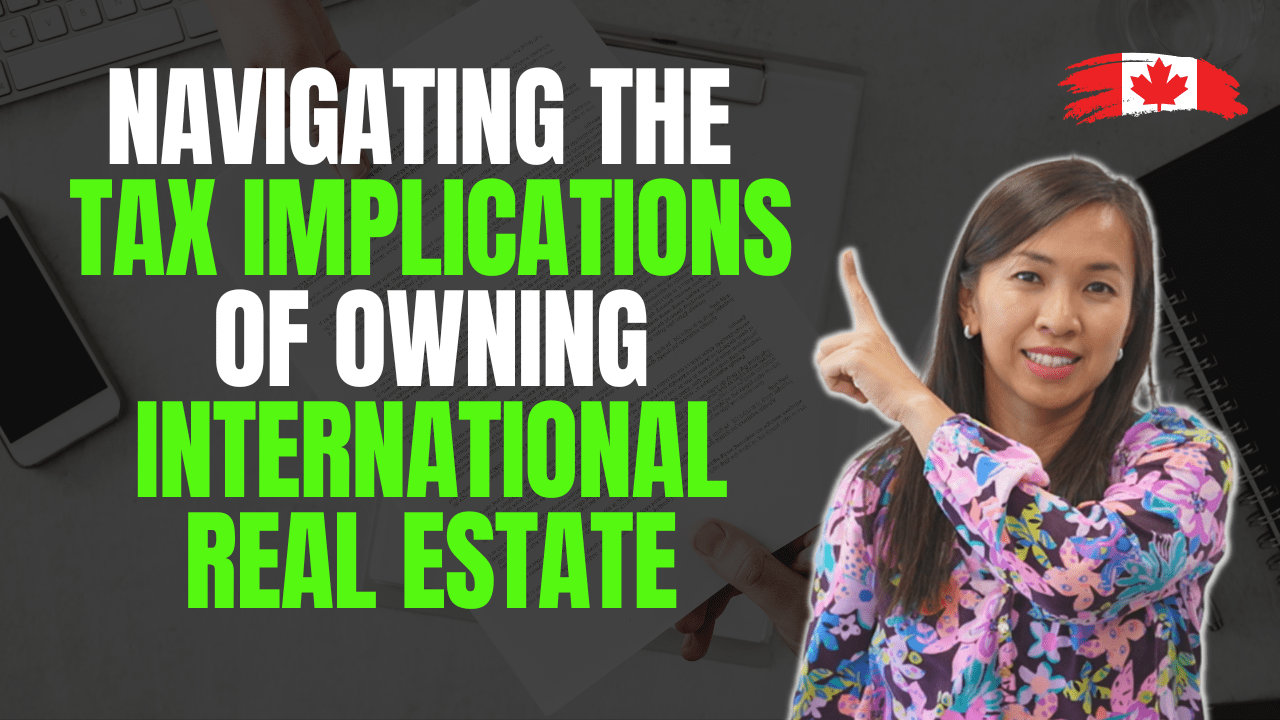A few months ago, I saw a piece of artwork at Queens Quay park. The artist was expressing the ideal of “everyone is entitled to have a place to live” through this art piece.
Erwin and I are currently in Hong Kong with the kids.
Yep, I’m here again, but this time it’s for my brother’s wedding.
Taking two 15 hour flight in just over a month with 13-hour time difference *is* a lot to this mommy of two. But seeing how my parents and my kids’ smiles make this second trip well worth it.
Kids do make everyone happy. ?
Now that I’m in a different country – seeing all the public housing and infrastructure built here reminded me of the ideal that “everyone is entitled to have a place to live”.
Maybe these four observations below could help us, Canadians, achieve this ideal faster.
#1: Create Public Rental Housing
- Public Rental Housing here in Hong Kong is responsible for housing over 2.1 million people in Hong Kong. The total population here is around 7.4 million. This is equivalent 28% of Hong Kong population.
- Rent can be as low as $200 CAD per month. Residents are responsible for paying for their own.
- These units are quite small. For a two-bedroom apartment, you are expecting 500 square feet of space for a family of four.
- Other government subsidized programs are also created to help the lower income families and the middle class to own their own homes. These other programs, together with the Public Rental Housing mentioned above, provide housing to 30% of Hong Kong Population.
Food for thought: Why can’t Canada have something similar? If there’s such a shortage of housing in major cities like Toronto, why can’t we build public housing in Canada to help the less fortunate?
#2: Residential complex is built around a public transit station
- I’ve always asked Erwin this question before, why can’t we, in Canada, build condos above malls? In Hong Kong, you see multiple condo buildings, residential complexes that are built on top of the train station. It can be a second home for those who are in need and should be look at as a viable living option.
- My parents live in a residential complex (about 25 buildings so far, I think they may still be building more towers nearby) that’s connected to the train station.
- A small mall is also built with restaurants and supermarket.
- A clubhouse, similar to the community centre, that has indoor kids playgrounds, indoor and outdoor swimming pools, working space, flight simulator (?! I know, isn’t that crazy?!), laser maze, etc. Amenities here are amazing.
Food for thought: We have an aging population in Canada. Why can’t we build more condo towers connected to the malls and public transits, so we can provide accessibility and enhance independence for elderly people?
You see the mad density we’re getting downtown Toronto? It’s because everything is there, transit, food, groceries, gym, everything. Why can’t we apply the same principle to the outside of Toronto? Build a network around a major transit stop.
My mom paid $300 maintenance fees every month to enjoy the indoor pool and all the amenities. This is achievable because there’re 25 towers built.
Instead of having one condo building and one pool here in Canada, can we have 10 buildings in one residential complex and share all amenities?
#3: Density drives public transit development and vice versa
Below is a picture of their train map. 7 of these lines were not there when I was here as a teenager 20 years ago.
They built 7 brand new transit lines in the last 20 years.
They also extended a few original lines to cover places that were not built 20 years ago.

This doesn’t include the new bridges and tunnels they built, the additional high-speed train and other infrastructure they’ve built.
Every time I come back for a visit, there’s always a new residential complex popped up somewhere.
Infrastructure drives density to a new area. Density also drives economic development and small businesses.
Toronto’s density is also growing every year. It’s obvious that our infrastructure isn’t keeping up. We haven’t developed a lot in the last 20 years in terms of infrastructure.
New condos projects in Eglington & Yonge area are stopped because our sewage system can’t handle the population.
When the Hong Kong government decided to build a new train station, they don’t go around to ask for people’s permission. They just go ahead and finish it. They still go over budget and politicians still get questioned, but things get done much faster.
There’s no right or wrong. My local friends complained about this system all the time. As a Canadian, I wish our government can move just a bit faster with their decision process, especially with building new infrastructure.
New infrastructure allows people to commute. They can afford to live in cities further away from the core.
#4: Time in the market is more important than timing the market
A few of my friends can’t afford to own their own homes in Hong Kong.
They make a decent salary and pay very little taxes, but they still can’t afford the initial downpayment.
Everyone’s ideal is different. If it is up to me, I would save enough, buy a small rental place and trade it for a better place as my own home a few years down the road.
At least you’ve got one foot in the market.
My friends are still trying to save up for the initial down payment for their ideal home. It’s tough. The market has gone up more than their ability to save. ?
One of our family friends in Hong Kong sold their flat a few years back thinking that the price was at its peak. They started renting and hoping for a downturn to get into the market again.
Now they’re paying $12K Canadian monthly rent. They can’t afford to get back into the market again. At least not in the area that they want to get in.
Time in the market is so much more important than timing the market, especially with a long-term investment perspective.
Maybe we shouldn’t aim to buy a big place like our home. Maybe we can learn to adjust to living in a smaller place.
Maybe we shouldn’t aim to buy our own home as our first property, maybe buying an investment property to get a foot in the door is better.
Hopefully, these Hong Kong real estate talk is somewhat interesting to you all.
Until next time, happy Canadian Real Estate Investing.
Cherry Chan, CPA, CA
Your Real Estate Accountant






Richard C
Safe travel back Cherry!!
Very interesting observations. It’s always refreshing to see how things work outside of our own little bubbles. It helps to set perspective.
Dianne Howie
Very interesting! Insights from what works well internationally are a good resource for what can work well locally. I think building density along transit corridors makes a lot of sense. We see that happening in Burlington along the GO train line and I agree with this. Too bad the condo fees are still high though.
Gil Hewer
Hello Cherry,
All excellent ideas. Now come the hard parts The first had part is talking to our political leaders and next getting some sort of commitment from them. Both easier said than done, especially in Ontario where the voters ( did many who voted for change really consider what kind of change they were voting for?) just elected a regressive conservative group that seems hell bent on undermining all manner of social legislation including housing and mass transit. Unfortunately the Fordites are continually looking backward and want as little government input in all phases of society as possible, including the all-important housing sector. Again, unfortunately there is not a lot we can do for the next four years except talk to the other two major provincial parties and hope that they can start laying the groundwork for more, much-needed, government action after the current ruling gang at Queens Park have enjoyed their time at the trough and dismantled so much of what is good for so many. As Churchill once said ” Democracy is the worst kind of government ! – Except for all the other kinds”. What we need is a benign dictator. Do you know of any?
Cherry
Hi Gil, I tried not to be political in my blog post but appreciate all your comment. I don’t follow much politics and can’t comment on whether PC has done enough. After all, they have only been elected since earlier this year. As a landlord myself, I do welcome the change they announced yesterday lifting rent control on all new built, although the effect is smaller short-term but will be more efficient in the long run.
No system is perfect. My parents grew up in a communist China, not the China that you and I see today. They escaped from it and hence why I’m in Canada. Communism isn’t perfect. Even though it appears to be open today, the government can still make you disappear if you have a different opinion. Democracy is US supposingly, but they have a lot of their own problems as well, worse than Canada. I consider Canada as more of a socialist country, but it isn’t perfect for everyone either. Every system has its good and its bad, I can’t say one is better than the other.
Can we learn from one’s good and improve from there?
Cherry
Christian S
With point #1, this has been done in Ottawa but I have to say that the city is one of the worst landlords in the area. If a private landlord was doing this, they would be chastised by the city! Ottawa has about 15,000 units but advocates believe another 10,000 is required. That would house about 5% of the population here.
For point #4, I agree with you. We started with a very small place we could afford; paid it down quickly and then bought the next place essentially growing our equity and minimizing how much interest we paid over time.
But I think the bigger win is to drive more competition between landlords and that means reducing disincentives to landlords (especially small scale mom/pop landlords). It would be more effective than incentives. The current RTA in Ontario for example is so unbalanced these days that it is scaring smaller landlords out of the market and keeping new ones from coming in. However, if we balanced the act better and increased the availability of adjudicators at the LTB then we would increase the number of landlords and result in higher availability of units to rent. And with more supply comes more competition that will have landlords competing with each other to attract tenants. There is nothing like competition to manage prices and improve service levels.
The current situation with the LTB and RTA is in fact driving rent prices higher by restricting the amount of supply.
Cherry Chan
Hi Christian, thanks for your comment. I appreciate all comment.
1. I don’t know the policies in Ottawa and how City of Ottawa is operating their government subsidized housing. I grew up in those low income housing in Hong Kong. I wouldn’t say they’re perfect either. Units that we lived in were small, but pretty minimally maintained. Unit that we purchased, however, was a bit better. When Erwin, my husband who’s born in Canada, visited the one we purchased, he noticed a significant difference in quality between a privately built property vs. a government subsidized one. I am just forever grateful for these government subsidized housing opportunities, which allow my parents to have their own place at a very low cost. Otherwise, they wouldn’t even have the opportunity to afford what they have today.
I do agree with you that the rules should be loosened up between landlord and tenants. I, myself, have suffered from these inequalities as a landlord. Our property was intentionally damaged by the tenant but LTB would not schedule a hearing until much later on. If this person were to damage a public facility, he would have been sent to jail immediately.
However, fair playing ground is one way to resolve the issue. It’s still not enough to provide sufficient housing in major cities in Canada. I think it’s worthwhile learning from other countries to provide low income housing, tax incentives to small scaled landlords, etc. so increase supply. Again, I don’t know it well enough to determine the “how” but it’s worthwhile looking at the issue from a different perspective.
Have a great day!
Joel Arndt
You made the point about density in #3, but I think that’s why Toronto hasn’t felt near enough pressure to heavily invest in transit and public housing. Sure, it’s a cramped city, but nothing like other major cities (especially Hong Kong). We’re still building out rather than up, does that make sense? I think as long as we have places to live just outside of Toronto Proper, the city won’t prioritize transit like it might need to. That being said, look at how GO is expanding, right? It’s quickly meeting the need of a migrating suburban population. I think we have a long way to go before we feel the real housing crisis (20 years?).